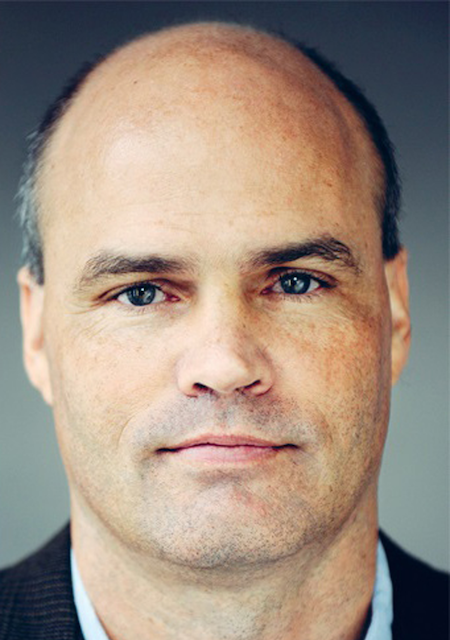FSU psychology professor receives international award

Thomas Joiner, Robert O. Lawton Distinguished
Professor of Psychology at FSU.
A Florida State University professor is being recognized for his contributions to the field of psychology, with a portfolio of work spanning such topics as eating disorders, depression and suicide.
Thomas Joiner, FSU’s Robert O. Lawton Distinguished Professor of Psychology, has been selected as a recipient of the 2020 James McKeen Cattell Fellow Award from the Association of Psychological Science. The award recognizes APS members for a lifetime of outstanding contributions to the area of applied psychological research.
Nominees for the James McKeen Cattell Fellow Award must be APS members whose research addresses a critical problem in society at large. The association typically selects only three recipients for the award each year from across the entire psychological science field.
“It's a validation of decades of work put in by my team and me,” Joiner said. “It is a major plank in a platform from which to advocate for the point of our work, suicide prevention.”
In addition to his professorship, Joiner is also the director of Laboratory for the Study and Prevention of Suicide-Related Conditions and Behaviors at Florida State University. Over the course of his career, he has authored or edited over 695 peer-reviewed publications and 18 books, won major awards and grants, and made numerous radio, print and television appearances.
Despite the international recognition, Joiner said he refuses to rest on the laurels of this eminent award.
“I look up to my predecessors, and some of the ones of who have gotten this award before me were and are true heroes to me,” Joiner said. “The accomplishments of James McKeen Cattell, for whom the award is named, are awe-inspiring. To be at all thought of in that same company may not be fully accurate, but it is rewarding.”
Cattell was an American psychologist who became the first professor of psychology in the United States in 1888, teaching at the University of Pennsylvania, Philadelphia. He dedicated his career to improving methodology for mental testing and applying psychology to areas of education, business, industry and advertising. Cattell founded the journal Psychological Review and was editor of the journal Science for decades.
FSU Department of Psychology chair Frank Johnson said, “Cattell began his career in psychology but transcended his discipline to become one of the giants of American science. This award recognizes that Thomas Joiner’s work and life have followed the same trajectory.”
Johnson said Joiner began his FSU career in a relentless effort to understand and prevent suicide, one of the most difficult challenges in the discipline of psychology. Along the way, he dismantled many harmful myths about the topic and his theoretical insights have led to a new level of scientific precision in real-world detection and prevention.
“Speaking on behalf of the FSU Department of Psychology – where we know Thomas Joiner as an incredibly warm colleague and principled mentor – I am delighted to congratulate him as the recipient of the 2020 APS James McKeen Cattell Fellow Award,” Johnson added.
The APS has bestowed this prestigious award to psychology trailblazers since in 1992.
Jeanette Taylor, former FSU psychology chair and current associate dean in the College of Arts and Sciences, supported Joiner’s nomination.
“Given how fearsome and daunting suicide is, it requires a form of fearlessness of physical ordeal and death,” Taylor said. “Joiner’s group has been the world leader in formulating and testing ideas regarding this novel yet fundamental insight.”
Since launching his Interpersonal Theory of Suicide, Joiner’s team has found clear support for the theory’s tenets, with teams besides his own conducting more than 100 studies on the concept. Taylor said this speaks to the influence Joiner’s theory has on the field, including inspiring new generations of scientists to study suicide.
“Thomas’ work has had a major international societal impact regarding suicide prevention,” Taylor added. “It has substantially influenced the way suicide risk assessment and intervention is conducted in day-to-day clinical practice.”
Joiner said he believes his work is making an impact, but there’s still work to do. That reality keeps him keenly focused on the goal.
“The whole point is preventing more suicides. I believe we're doing that already, which seems at odds with rising rates. But the real question is what would those rates have been absent our efforts? Higher still, I'm pretty sure. Nevertheless, I want to deflect the trajectory of rising rates to flattening and then to decreasing, asymptoting toward zero.”
Joiner will receive his award in May 2020 at the 32nd APS Annual Convention in Chicago.

